MercoPress. South Atlantic News Agency
Environment
-
Friday, December 20th 2013 - 06:20 UTC
November, warmest month since modern temperature record keeping began in 1880
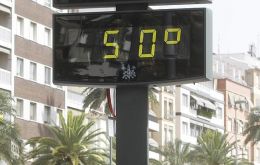
Last month was the warmest November since modern temperature record keeping began in 1880, the National Oceanic and Atmospheric Administration announced in its latest State of the Climate Report, which summarizes climate-related news from around the world.
-
Wednesday, December 18th 2013 - 07:15 UTC
Heat wave in Argentina collapses power grid: thousands with no energy or water
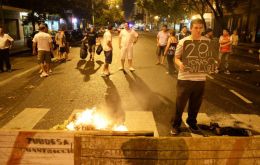
People out in the streets banging pots and pans, or protesting burning tires and garbage containers in powerless neighborhoods, while an estimated 30.000 businesses in Buenos Aires City and metropolitan area are organizing demanding compensation for losses suffered because of the collapse of the power distribution system overwhelmed by an extraordinary heat wave with temperatures in the high thirties and low forties.
-
Wednesday, December 18th 2013 - 07:05 UTC
Kimberlite rocks found in Antarctica could mean the territory is rich in diamonds
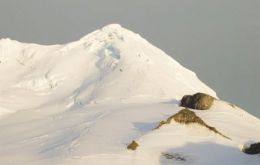
The prospect that Antarctica could be rich in diamonds was published in the scientific journal Nature Communications, following the discovery by a team of a telltale rock called kimberlite in the Prince Charles Mountains in East Antarctica.
-
Tuesday, December 17th 2013 - 17:51 UTC
West Antarctic ice sheet loss, one of the multi-year projects to be started this year by BAS
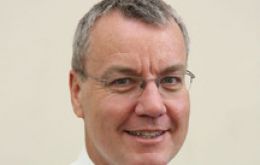
With the Antarctic Summer well underway, British Antarctic Territory Commissioner Peter Hayes has sent his well wishes to British Antarctic Survey staff (BAS) working on the continent over the coming months. In a recent letter to UK Base commanders Dr Hayes commented:
-
Saturday, December 14th 2013 - 07:03 UTC
Falkland Islands progress in renewable energy surprises Chilean experts.

Three experts in the use of renewable energy who were visiting the Falkland Islands this week as the guests of the Falkland Islands Government declared themselves surprised by extent of the efforts made in the Islands to reduce dependence on fossil fuels.
-
Saturday, December 14th 2013 - 05:56 UTC
Prince Harry and team of 'Walking with the wounded' reach South Pole

Prince Harry and his fellow adventurers in the Walking With The Wounded expedition have arrived at the South Pole, the organizers have said. The group stood at the bottom of the world at 12:00 GMT Friday after more than three weeks of pulling sleds.
-
Friday, December 13th 2013 - 09:11 UTC
Ice loss pushing Antarctica side-wards half an inch per year, according to GPS recordings

Heavy ice loss in West Antarctica has weakened it mantle underneath, allowing the stronger East Antarctica mantle to push it around, according to Ohio State University researchers. The discovery was made after recording GPS measurements, which clearly showed that the West Antarctic bedrock is being pushed at an alarming rate of half an inch per year.
-
Friday, December 13th 2013 - 09:07 UTC
NASA study finds close links between climate and the ozone hole size variation
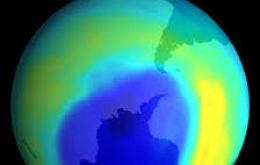
It turns out that the ozone hole may not be completely healed--at least according to new NASA data. Scientists have examined the inner workings of the ozone hole that forms annually over Antarctica and have found that declining chlorine in the stratosphere has not yet caused a recovery of the ozone hole.
-
Thursday, December 12th 2013 - 06:33 UTC
Latam forecasted to expand 3.2% in 2014 after a 2.6% this year, says Eclac
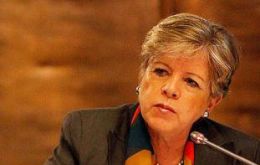
The economies of Latin America and the Caribbean will expand by 3.2% in 2014, which is higher than the 2.6% for 2013, according to the latest report from the UN Economic Commission for Latin America and the Caribbean, launched on Wednesday in Santiago, Chile.
-
Wednesday, December 11th 2013 - 03:58 UTC
IAATO names Amanda Lynnes part-time Operations and Communications Assistant
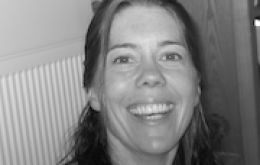
The International Association of Antarctica Tour Operators (IAATO) has announced the appointment of Amanda Lynnes to the part-time position of Operations and Communications Assistant. Amanda is responsible for communicating IAATO’s key messages and will assist in the development of the environmental and operational components of the Association.
